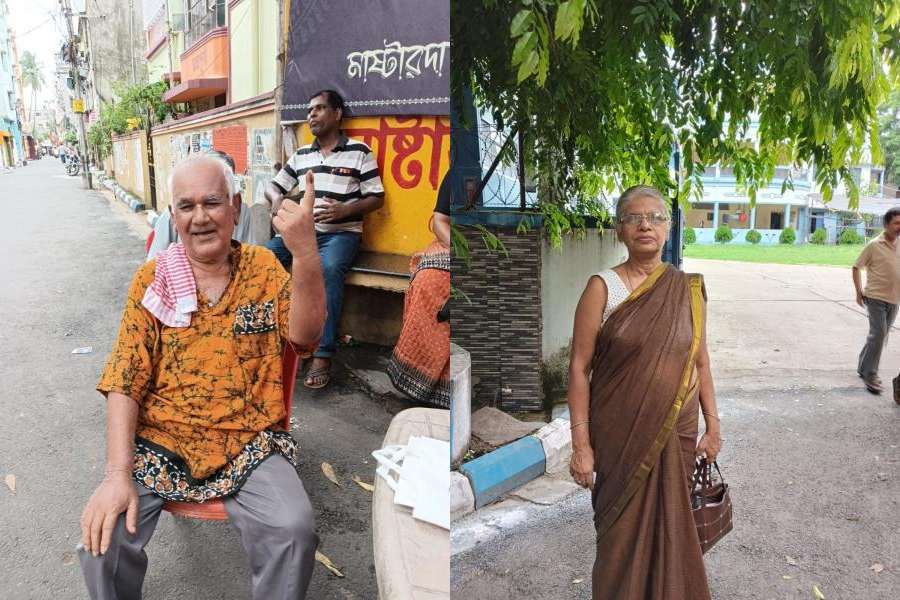The BJP’s thrust on the new citizenship matrix appears to have riled voters in some pockets in Calcutta.
Like 67-year-old Anjana Roy Chaudhury, who lives all by herself.
The resident of Suryanagar, a colony of 1,200-odd residents in the Jadavpur parliamentary constituency, went back to her school in Howrah looking for her school-leaving certificate.
She was looking for a document to attest to the fact that she studied at Bhavani Balika Vidyalaya and passed her Class X board exams from there.
Her family is originally from Barishal in Bangladesh.
Roy Chaudhury said she was concerned because she did not know what exact documents would have to be produced to apply for citizenship under the new law. She also does not know what would happen if her documents are found inadequate.
“Why plunge us into fresh uncertainty? Our families have had to face many trials and tribulations anyway,” said Roy Chaudhury.
There are hundreds like Roy Chaudhury in colonies on the southern fringes of Calcutta. Their families migrated from the erstwhile East Pakistan or when the country became Bangladesh.
All of them have lived as legitimate Indian citizens for years and many have prospered. Some of their children live abroad or are settled in other cities for better jobs.
The people left behind are old and anxious.
Bacchu Chatterjee, 70, said his father had come to Calcutta from Barishal in 1952.
“I don’t know where I can get the records to prove that I was once a national of East Pakistan. We have been raised here and have been voting for ages. Why do we have to seek citizenship now? This has spread panic among the residents here,” said Chatterjee.
The Citizenship Amendment Act (CAA) promises Indian citizenship to individuals who entered India on or before December 31, 2014, and belong to the Hindu, Sikh, Buddhist, Jain, Parsi or Christian communities from Pakistan, Afghanistan or Bangladesh.
The law stands accused of violating the secular principles enshrined in the Constitution and discrimination on the grounds of religion.
Many of those who were forced to leave East Pakistan or Bangladesh many years ago have become naturalised Indian citizens but the CAA has sown fresh doubts.
Siddhartha Ganguly, a resident of Gandhi Colony in Regent Estate whose ancestors are from Pabna in Bangladesh, said: “Why should we apply for citizenship now? I am an Indian. I have always voted in India.”
Ratna Bhadra, who was standing next to Ganguly in a bylane after casting her vote in the Jadavpur constituency, said: “The CAA is linked to the NRC (National Register of Citizens). What has happened in Assam has a lesson for all of us.”
As many as 14 lakh Hindus lost their citizenship for lack of documents after the NRC was implemented in Assam.
Roy Chaudhury went back to the school from where she passed her secondary exams in 1978 in the hope that whatever she could procure might be of help.
The school certificate alone may not suffice, she is worried now.
Her daughter is married outside Calcutta.
Chatterjee said he had heard that he had to apply on a portal for citizenship and upload documents and an affidavit vouching for the authenticity of the statements made in the application.
“How will I do all that at this age? This sudden revival of the citizenship drive has left me worried,” he said.











